
6 minute read
Period poverty Action Aid looks at the use of sustainable products
from Your Health Hub
poverty Period poverty and the use of sustainable products by ActionAid UK Period
How much are you spending on periods in your lifetime? Our calculator gives a stark reminder of the financial burden of menstruating. As a result of this cost, millions of women and girls worldwide can’t afford to buy or access the
Advertisement
Aida is a 16-year-old girl in Malawi who wants to be a nurse when she’s older but who began to skip school because of the bullying she faced when she had no means of cleaning or changing her pad. “The boys could see the cloth and they laugh at me, so I go home to escape the bullying,” she says. safe sanitary products they need to manage their periods without shame or stigma.
In the countries that ActionAid UK works in, women and girls are often forced to use whatever they can to manage their periods, including rags, newspapers and even tree leaves. Those who have some pads may also have no choice but to re-use the same one for many days – putting their health at serious risk. These same women and girls often face local taboos about menstruation as well, which restrict their way of life further.
For example, in some cultures menstruating women and girls are prohibited from using salt in their cooking; milking animals, and touching other family members during their cycle. They are also told they can’t get pregnant if they
have sex while they have their period. Girls we work with have also reported facing ridicule at school when menstrual blood has leaked through their clothing leading to missed days and some drop out altogether.
It’s estimated that one in 10 girls in Africa will miss school when they have their periods. Missing school or work, in the long run, can have a devastating impact on their potential to live a normal life, support themselves and contribute to their communities. Additionally, girls missing out on school can leave them
Ishu is a 14-year-old girl in Nepal who has to leave her family every time she has a period because it’s believed she will bring bad luck. She is forced to live alone in a remote, windowless mud hut without warm clothes or running water. “I’m scared to stay alone in the hut”, she says, “I’m scared of ghosts and snakes [and that] bad people will come and attack me.” This practice is called chauppadi and although it has been illegal since 2005, it’s still practised in many communities. In recent years, at least two girls are known to have died as a result of it. more vulnerable to child marriage and early pregnancy – ultimately denying them their basic right to be educated and reach their potential.
Mass-produced; disposable sanitary products are also harming the environment due to containing non-biodegradable materials. Most sanitary pads contain up to 90 per cent plastic, for example, while tampons have plastic applicators. This large-scale plastic production releases vast amounts of greenhouse gases which cause air pollution and global warming. Improper disposal of sanitary products such as wrapping them in plastic bags also fills up landfills and takes years to biodegrade. Some sanitary products are also flushed down the toilet, which could mean that they end up in the sea and washed up on our beaches. This has detrimental effects for humans, the wildlife and our land and oceans.
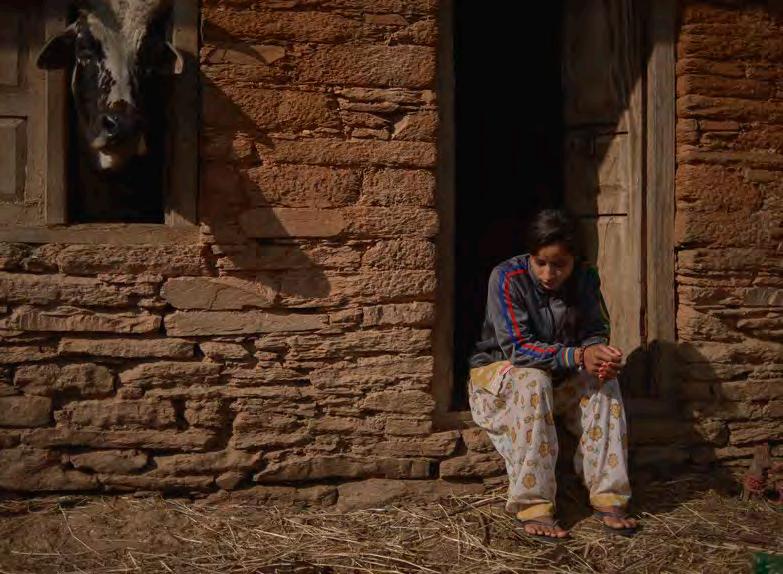
ActionAid UK is running programmes worldwide to put an end to these problems for good. We train women and girls to make reusable sanitary pads, so they always have access to clean and affordable sanitary products, and will always try to implement sustainable solutions, such as reusable DIY cloth pads.
For example, in a pilot project in Malawi women and girls are trained to make DIY pads with sewing machines to then sell at the local market for a small sum supporting them to become economically independent, and supporting girls education by distributing them in local schools. https://www.actionaid.org.uk/ blog/news/2019/05/24/how-to-make-your-ownreusable-sanitary-pads
In many countries, and with support from players of the People’s Postcode Lottery, our biggest donor, we have also opened more girls’ rooms in schools, where girls can get changed, use the toilet, access free fabric pads and learn sewing skills to make their own. They can also access more information about their periods, sex and pregnancy in these safe spaces, so they are better informed about their bodies.
And, where appropriate, we distribute menstrual cups to women and girls. Menstrual

cups are made of silicone and last 10 years, leaving very little waste. They are also easy to use and safe as they can be sterilised using boiling water.
Our work increases girls’ choice and access to sanitary products, putting their voices front and centre when determining which products are most useful for their communities as well as for the environment.
In some situations, such as humanitarian emergencies, it is difficult to promote sustainable options. If there is no running water or means of cleaning and sewing, reusable pads and menstrual cups are not effective. At times like this, we need public support to provide thousands of women and girls with hygiene kits that contain more traditional sanitary pads. Ultimately however, our focus is on ending gender inequality because this is what causes period poverty. We need to tackle the gender injustice that allows periods to hold women and girls back from reaching their full potential and progress.
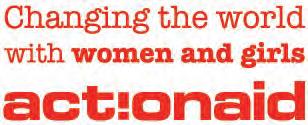
Period swaps Sustainable options that won’t harm the environment www.yourhealthhub.uk

Use cotton tampons or sanitary towels - some are plastic free
Try reusable and washable sanitary towels or underwear
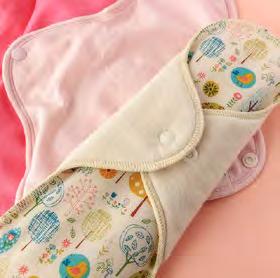
Mooncups or menstrual sea sponge tampons are washable and reusable
Coming up in your local guide to Health & Wellbeing...
In Focus Body, Health & Fitness. A look at fitness trends, allergy testing & supplements
In Focus Demystifying holistics and a look at women’s health
Directory Listings from £35 payment plans available
www.yourhealthhub.uk Zandra: T | 07866 587117 or 01442 834398 E | zandra@yourhealthhub.uk
the
of healthy skin beauty
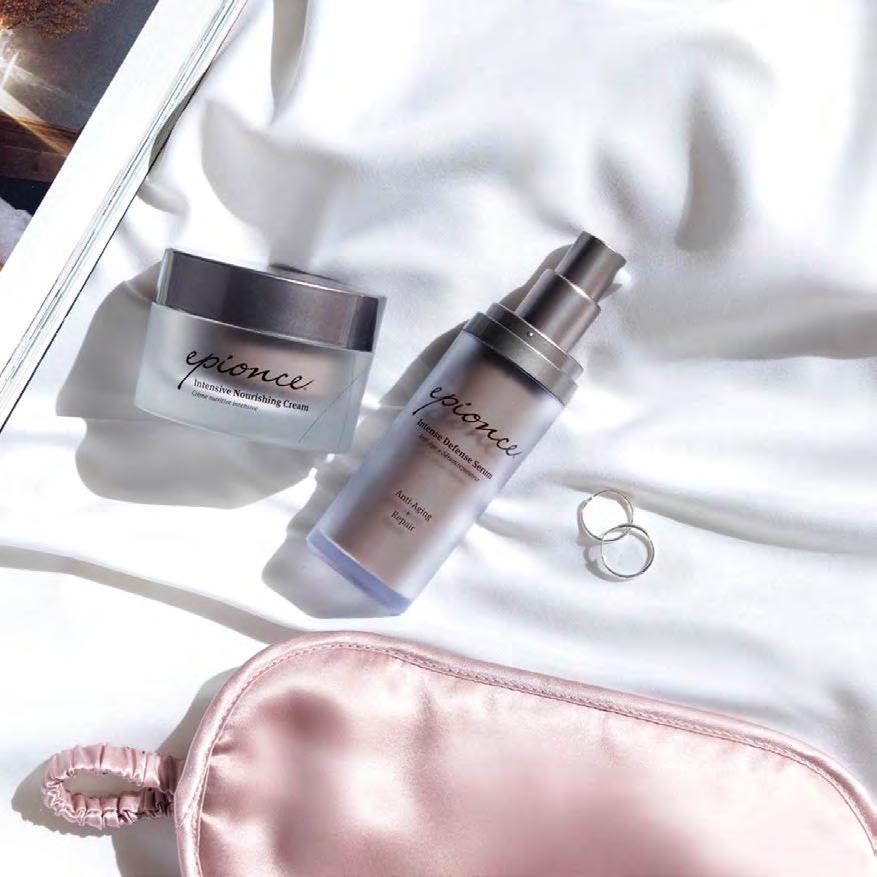
The founder of Epionce, Dr Carl Thornfeldt has spent twenty-five years focusing on researching abnormalities of the skin barrier, cutaneous inflammation, drug delivery, herbs, and disease therapies.
Epionce formulas are botanically based and optimised to improve skin function by reducing inflammatory factors while improving barrier strength. The products are paraben free, gluten free, fragrance free and are vegan friendly. Epionce do not use or endorse animal testing for any of their skincare products. It really does sound too good to be true!!
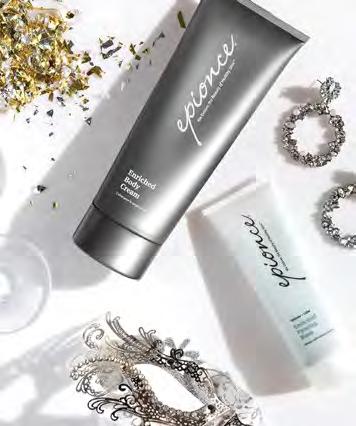
Just take a look at the three key technologies and ingredients used for maximising natural results:
Anti-Inflammatory Technology Anti-Inflammatory Technology helps block the formation and activation of inflammatory factors in the skin. Key Ingredients: Date Fruit Extract, Meadowfoam Extract, Apple Fruit Extract, Flax Extract.
Barrier Repair Technology Barrier Repair Technology helps strengthen and repair the natural protective skin barrier for optimal function. Key Ingredients: Safflower Extract, Avocado Extract, Meadowfoam Extract, Phytosterols, Phytosphingosine.
Keratolytic Technology Keratolytic Technology encourages cell turnover to remove dead skin cells, clear pores of impurities and retexturize skin. Key Ingredients: Azelaic Acid, Zinc Pyrithione, Salicylic Acid, Willow Bark Extract.
Packaging Many of the bottles, jars and tubes are made from either HDPE (High Density Polyethylene) or PETE (Polyethylene Terephthalate), all of which can be recycled through most municipal recycling programs. All exterior product boxes are made from SBS (solid bleach sulfate) paper- board, which can also be recycled through most municipal recycling programs.
If you’d like to try before you buy, contact Wendy at Tocolo who will provide you with some free samples. It really is an amazing skincare range and worth a try.

T | 07824 553735 E | enquiries@tocolo.co.uk W | tocolo.co.uk










